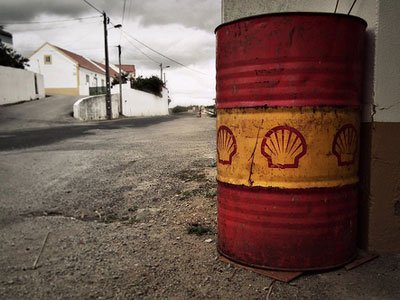Saturday 27 October 2012 - 11:09
Story Code : 8794
Shell seeks Iran sanctions workaround via Cargill grain barter
(Reuters) - Oil major Royal Dutch/Shell (RDSa.L) is seeking to work around international sanctions by repaying a $1.4 billion oil debt to�Iran�with a grain barter deal via U.S. agribusiness giant Cargill CARG.UL, industry sources said.
Shell wants to repay a debt that is growing larger because of unpaid interest, having failed to settle its accounts with the National Iranian Oil Company (NIOC) ahead of a European Union embargo on oil imports that started on July 1.
It is hoping to get clearance from U.S., UK and Dutch authorities - who will be under pressure to agree on humanitarian grounds - for an "offset agreement" that would permit it to fund Cargill to deliver enough grain to Tehran to clear the debt.
"Shell wants to repay what it owes NIOC (National Iranian Oil Corp). They want to maintain amicable relations for the day when sanctions are lifted," said an industry source.
"An offset transaction is the only way forward," said another. "They are looking at several options. The main one is Cargill."
Shell and Cargill declined to comment.
In the run-up to the July 1 EU oil embargo deadline Shell kept buying Iranian crude after its competitors had called a halt. In the summer it was denied permission by the UK government to pay Tehran direct via bank transfer. Sanctions bar European�banks�routing payments for oil back to Iran.
MINDED TO SAY 'NO'
The proposed offset agreement creates a tricky dilemma for Britain and the United States, two of the six countries that are in negotiations with Iran to persuade it to step back from a nuclear program they suspect is developing atomic weapons.
While they will want to avoid anything that eases the financial pressure on Iran, they will be sensitive to accusations, should they reject the arrangement, of deliberately blocking basic humanitarian supplies.
"They're minded to say 'no' because the whole idea is to reduce Iranian oil revenues, but it's complicated by the fact that this is about the delivery of food," said an industry source.
The U.S. State Department declined comment. A spokeswoman for the UK Treasury said she could not comment on specific cases but added: "The government fully backs the tough regime of EU sanctions that have been put in place against Iran." The Dutch Economic Affairs Ministry did not comment.
"It's a pretty complicated transaction that needs three sets of government approvals for an exception to sanctions covering banking, insurance, shipping and dealing with a banned Iranian counter-party, NIOC," said Mark Dubowitz, the head of the U.S. Foundation for Defense of Democracies, which is a leading advocate of harsher sanctions on Iran.
"They'll be wary about whether this is precedent-setting for other companies that may be in debt to Iran."
This year's banking, oil, insurance and shipping sanctions have tightened the screw on Iran's finances, halving its oil exports and forcing a collapse in the value of the Iranian rial currency.
Sanctions do not apply to the delivery of�grains�and other foodstuffs but, isolated from international banking, Iran has been forced to pay a premium for grain imports. Grain traders expect it to end up buying about 5 million metric tonnes on the open market in 2012, some of that supplied by Cargill.
Grain worth $1.4 billion would be enough to meet about 80 percent of that annual import requirement, assuming a range of imports including wheat, corn and barley priced at about $300 a metric tonne with shipping.
That would provide a stopgap for the drain on Iran's dwindling foreign exchange reserves, which are thought to have dropped by tens of billions of dollars this year from about $100 billion at the start of the year.
The Iran Project is not responsible for the content of quoted articles.
# Tags











